
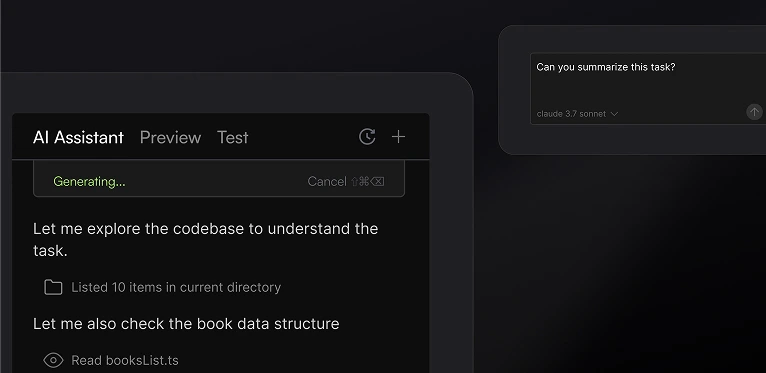


The future of hiring & upskilling
Discover what's new with HackerRank in January 2025
Dive in and explore the latest features
Screen
Secure Mode
.gif)
Enhance the integrity of your assessments with Secure Mode, which locks the assessment interface in full-screen mode and warns candidates if they switch tabs during the test. You can enable Secure Mode in the Test Settings, ensuring candidates rely solely on their skills without external assistance during the assessment.
Interview
Interview Integrity Signals
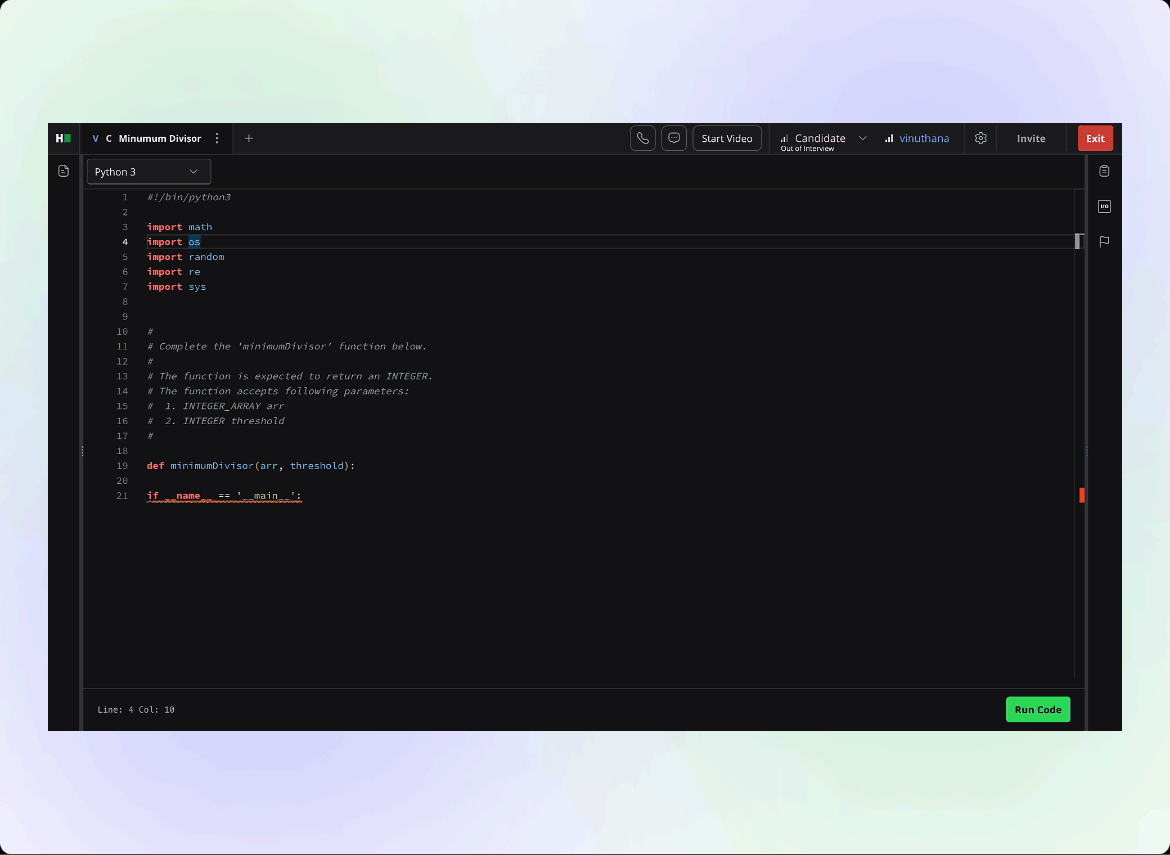
Build trust in remote interviews with live integrity signals designed to detect behaviors such as tab switches, code copy-pasting, and the use of multiple monitors. Candidates are given clear expectations during the onboarding phase to avoid surprises. For flexibility, you can mute these notifications during interviews, accommodating varying company preferences such as allowing or restricting AI tool usage.
Custom Scorecards
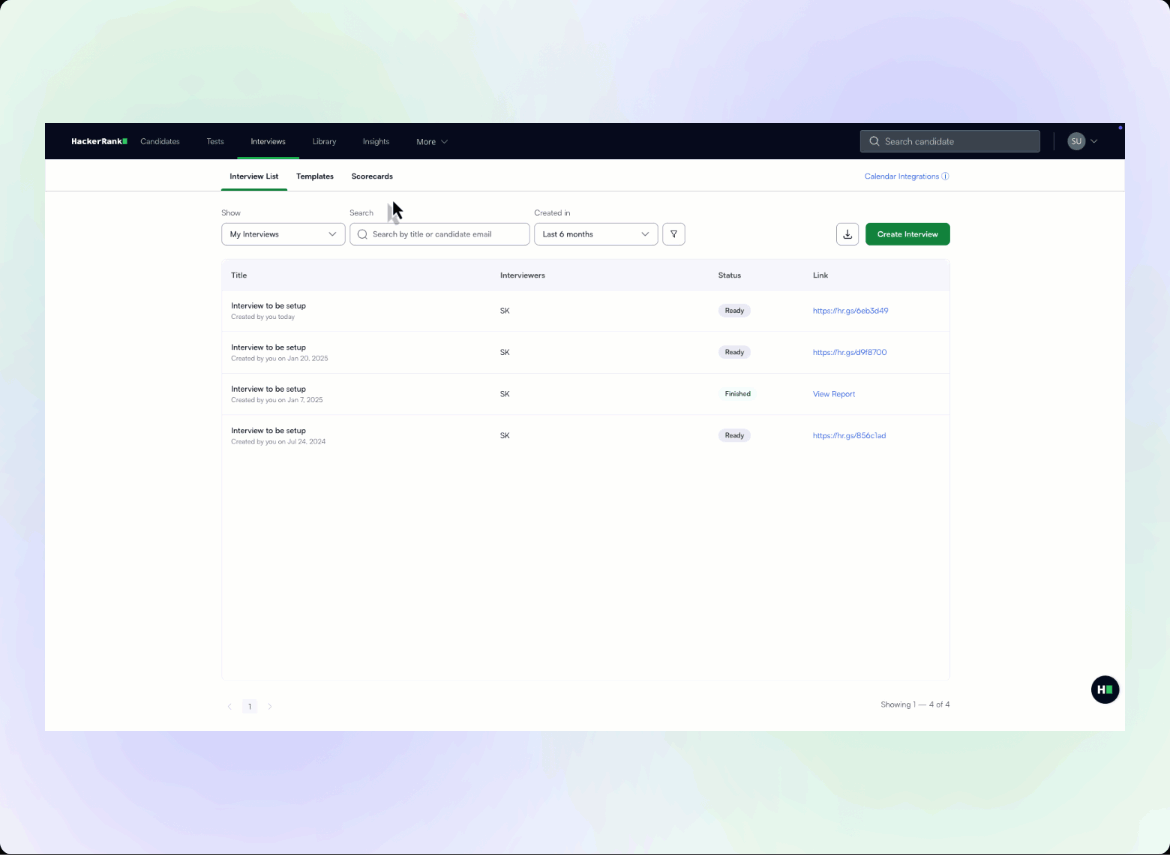
Ensure consistent and structured interview evaluations with customizable scorecards tailored to your unique hiring needs. From the new Scorecards tab or within an interview template, you can create and edit scorecards that mirror your specific evaluation criteria, making it easier to assess candidates effectively. Choose from various input types (e.g., text fields, dropdowns, rating scales) to match your interview criteria.
Interview Question Library Tab (Limited Availability)
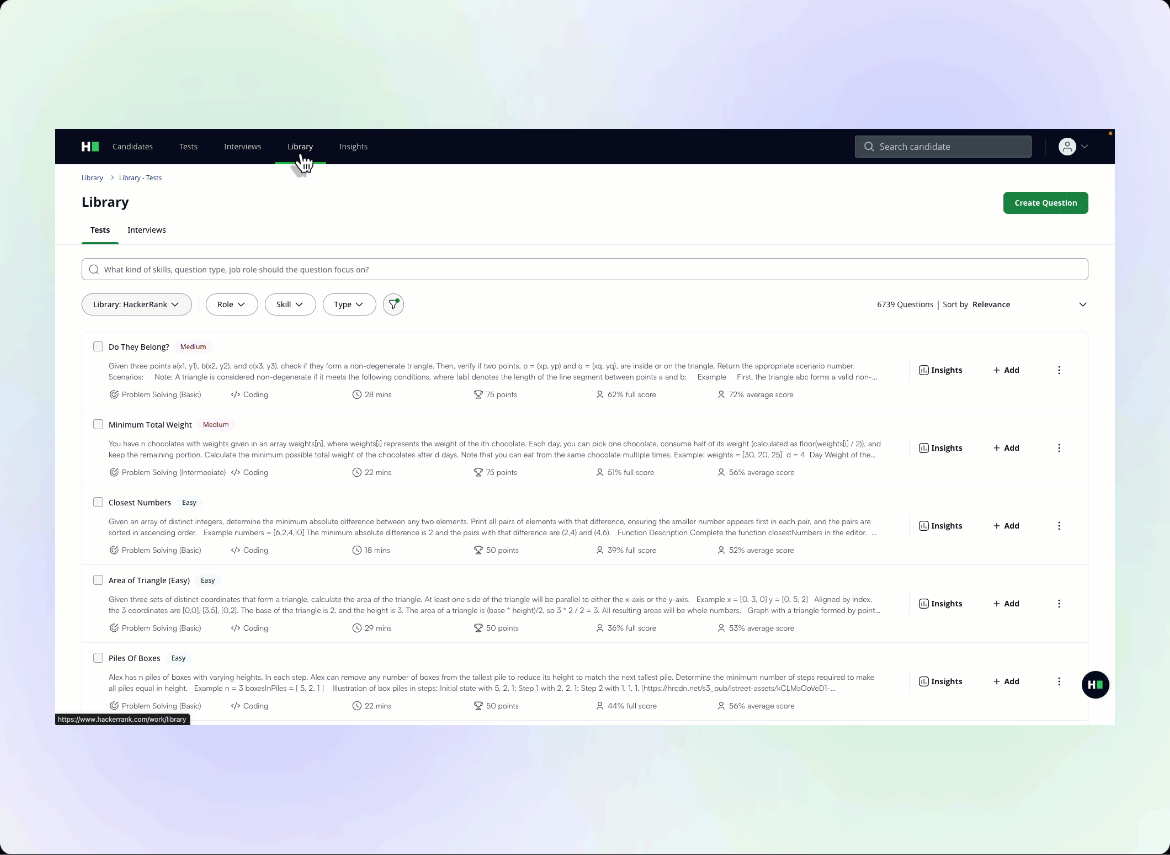
Discover interview-specific questions with ease. This new tab in the Library menu focuses on system design and bug-fixing tasks, distinct from take-home assessments. This is currently available on a limited basis. Please reach out to your account manager if you are interested in gaining access
Rooster Integration for Interview Scheduling
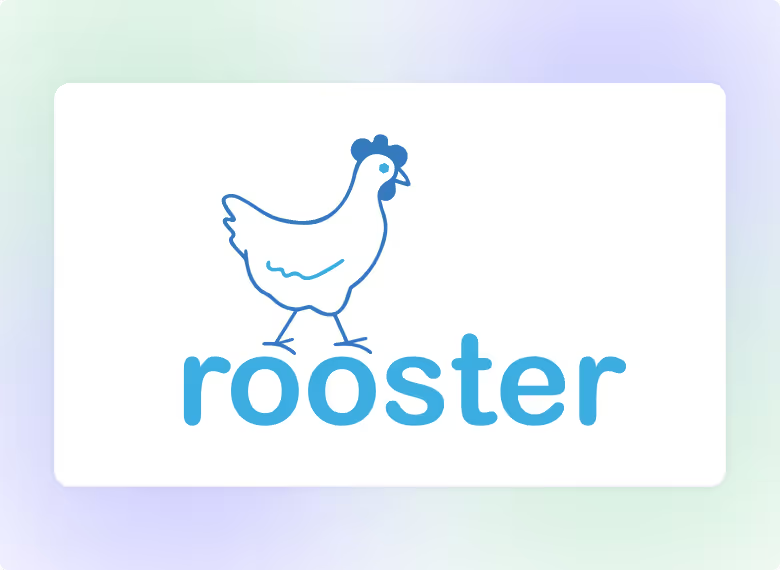
A new integration between Rooster and HackerRank simplifies technical interview scheduling for Workday-integrated customers. This integration lets you sync interviewer availability between Rooster and HackerRank, enabling candidate self-scheduling, securely sync interview feedback into Workday, and quickly create HackerRank interviews directly from Rooster.
Integrity
Developer Experience
Monaco editor updates
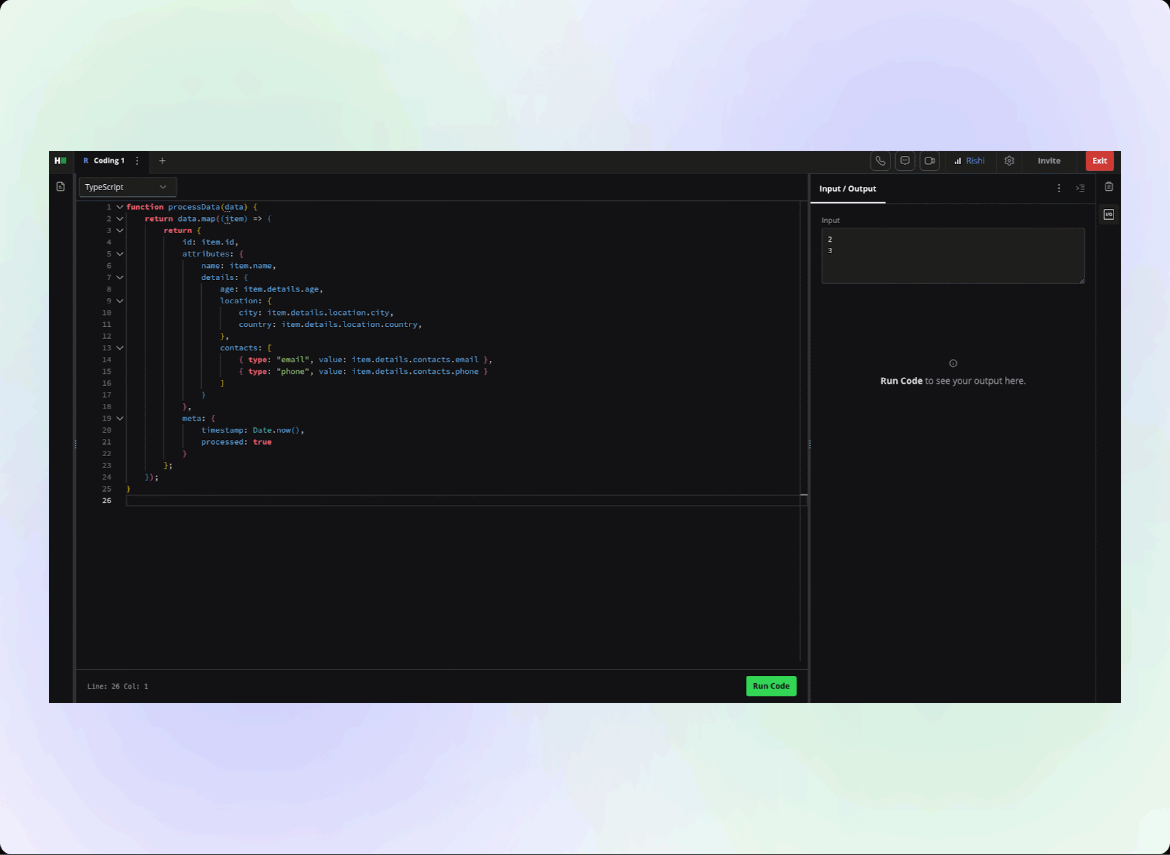
Candidates can now enjoy a smoother coding experience with features like colorized bracket matching for navigating nested code, sticky scroll to keep important lines visible, TypeScript 5.5 support with features like decorator syntax, improved Vim mode with additional visual modes and shortcuts, and resolved accessibility issues for a more inclusive environment.
Run Test Interface
.avif)
The new Run Test Interface in VSCode makes interpreting test results easier for front-end and Code Repository questions. Designed with a developer-friendly approach, it simplifies result analysis.
Integrations
Engage
Show Accurate Program Timelines
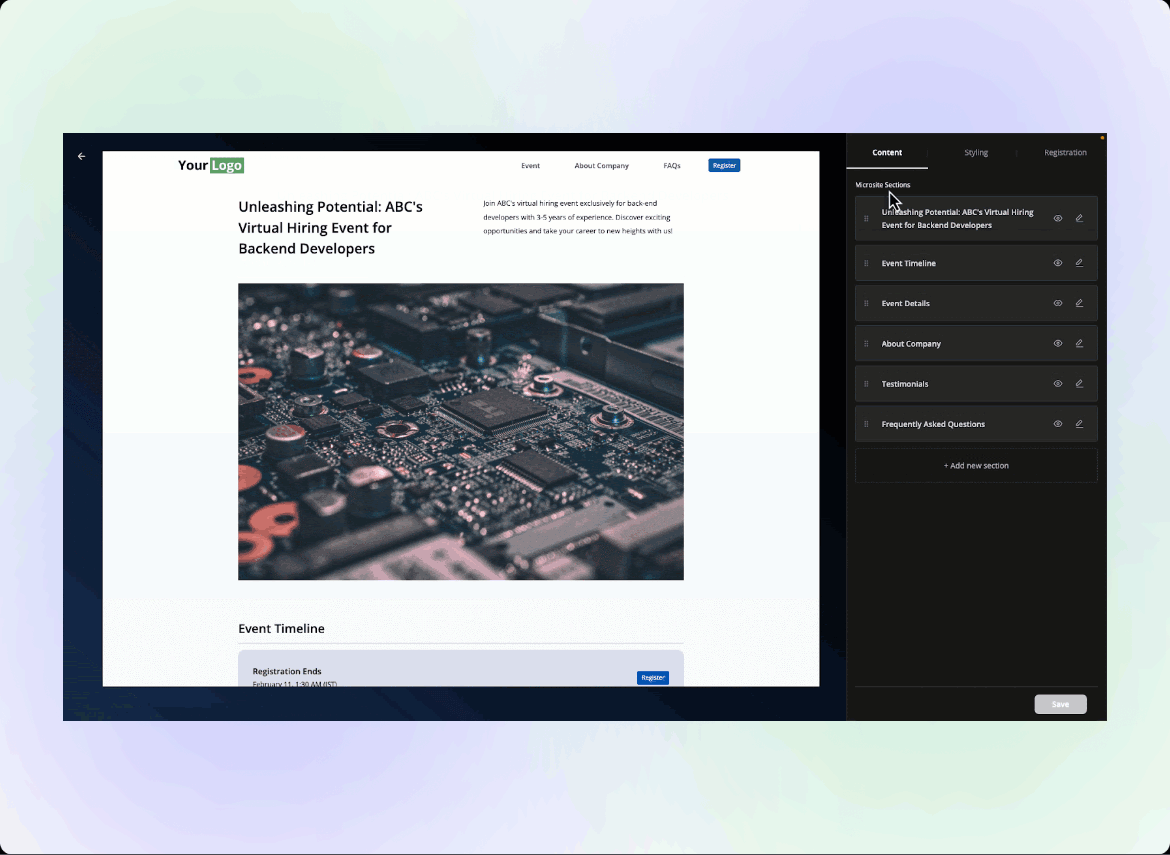
Ensure participants understand timelines by setting schedules for each round of your hiring event directly within the microsite editor. This feature helps your audience see how a specific coding challenge fits into the overall program, making it easier for them to stay organized and on track.
Candidate Workflow Updates
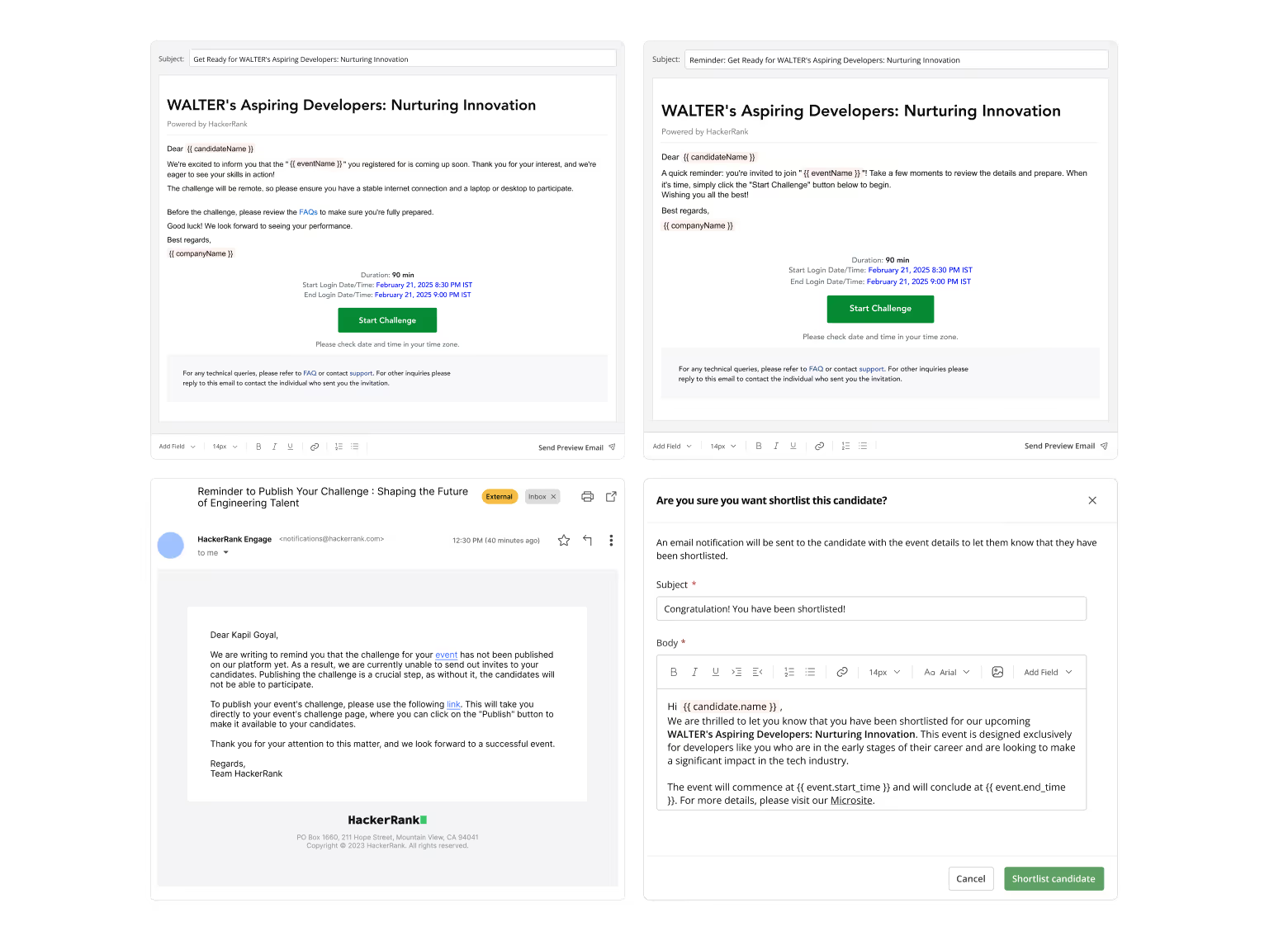
Enhance participant engagement with improved workflows designed to streamline your hackathon experience. Updated content for invite and reminder emails now helps differentiate hackathons from regular assessments, ensuring participants clearly understand what to expect. Automated nudges are sent days before events begin, prompting you to publish challenges and keep everything on track. Additionally, you can now shortlist candidates, ensuring the eligibility and relevance of top-of-the-funnel participants.
On-Brand Microsites
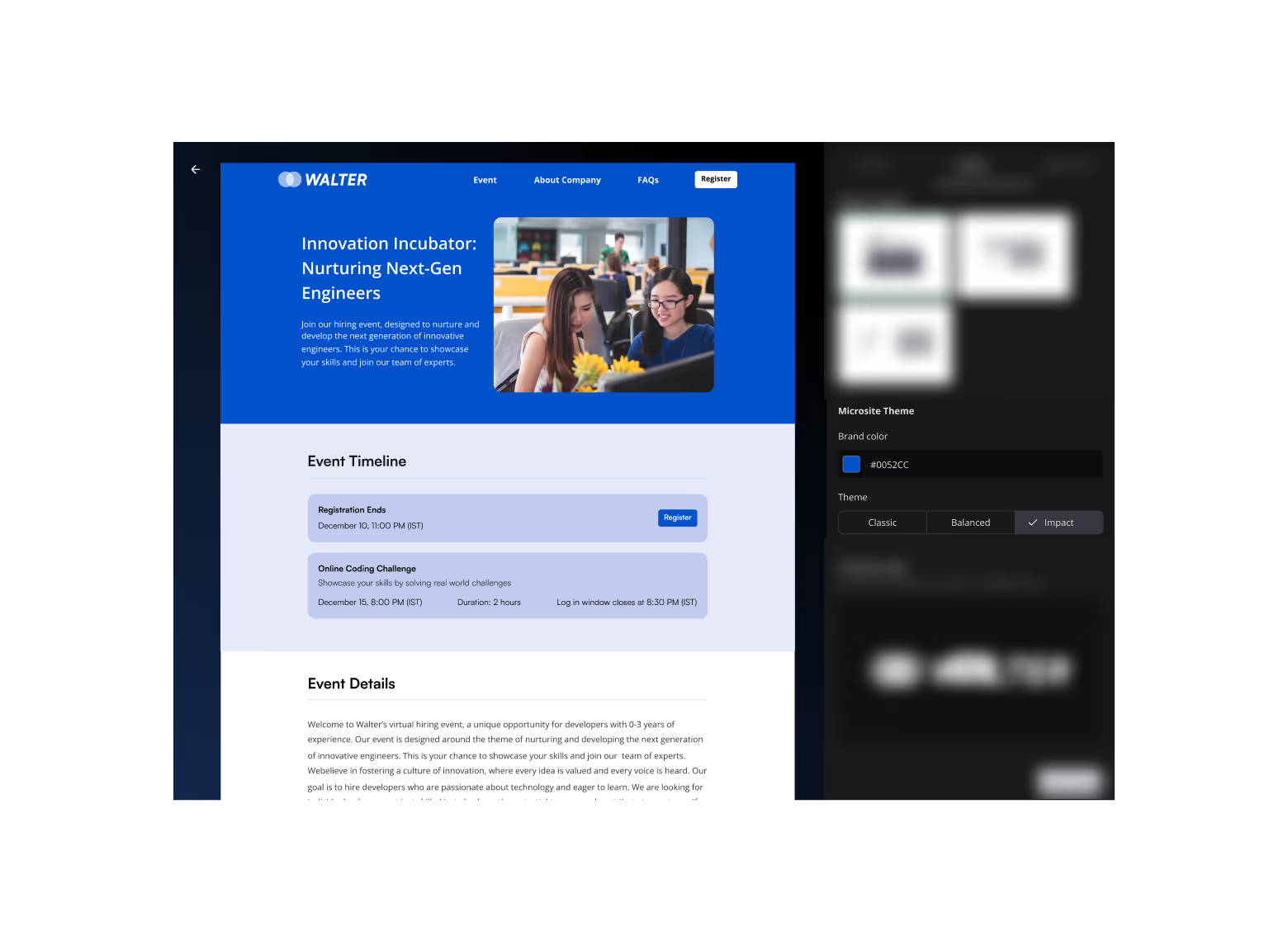
Quickly create branded event microsites with the new ‘Theme’ feature. Set your brand colors, and with one click, generate a professional, consistent look that leaves a lasting impression.
Marketing Insights
.avif)
Easily track the performance of your marketing campaigns with a new analytics signal. View the number of microsite visitors and segment views by source directly from your event overview page.
SkillUp
Updated Skill Proficiency Labels
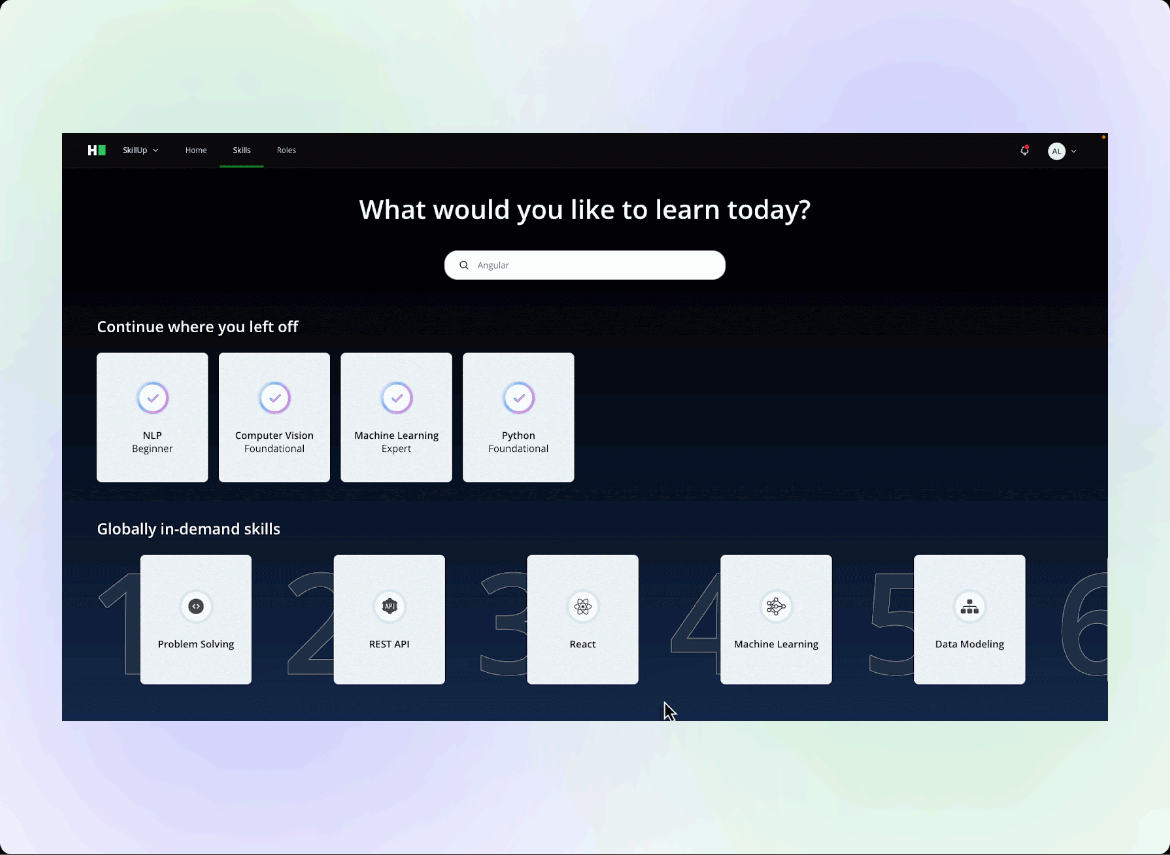
Skill proficiency labels have been updated to align with widely recognized competency models, simplifying the evaluation and communication of skill levels. The updated labels are as follows: “Pre-Beginner” is now “Beginner,” “Beginner” has been renamed “Foundational,” while “Intermediate” and “Expert” remain unchanged. These updates offer more standardized definitions, ensuring improved alignment with organizational frameworks.
Exportable Reports
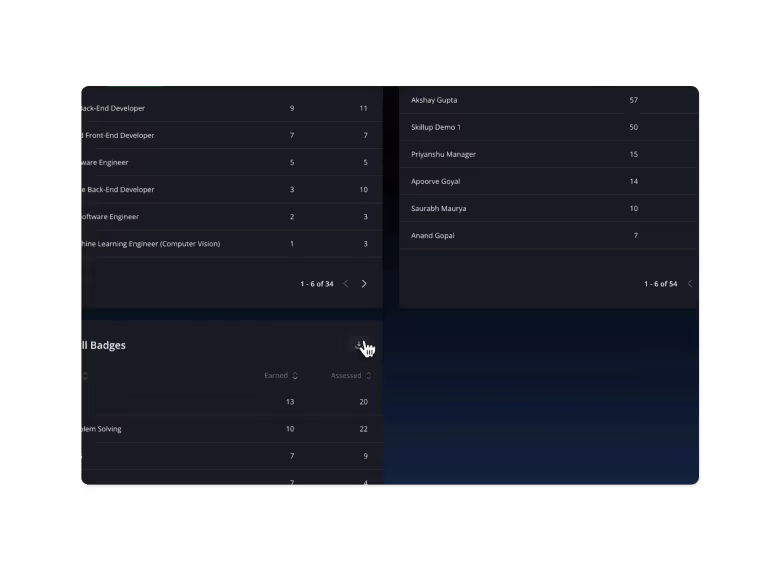
Gain deeper insights into your team’s skills with newly exportable reports for Skill Badges and Role Certifications, which were previously accessible only through the Overview tab. The Skill Badges Report includes columns for each skill proficiency level—Foundational, Intermediate, and Expert—providing detailed breakdowns of badges assessed and earned. Similarly, the Role Certifications Report offers visibility into certifications by showing the number of users assessed and certified for each role, enabling effective tracking of progress and expertise.
Developer Community
Mock interviews
.avif)
Developers can now practice with AI-powered mock interviews, including a new System Design Mock Interview with a whiteboarding tool and feedback on scalability and reliability. Enhanced features like markdown support and interactive feedback ensure a smoother experience, with over 10,000 mock interviews already conducted.
React Practice Track
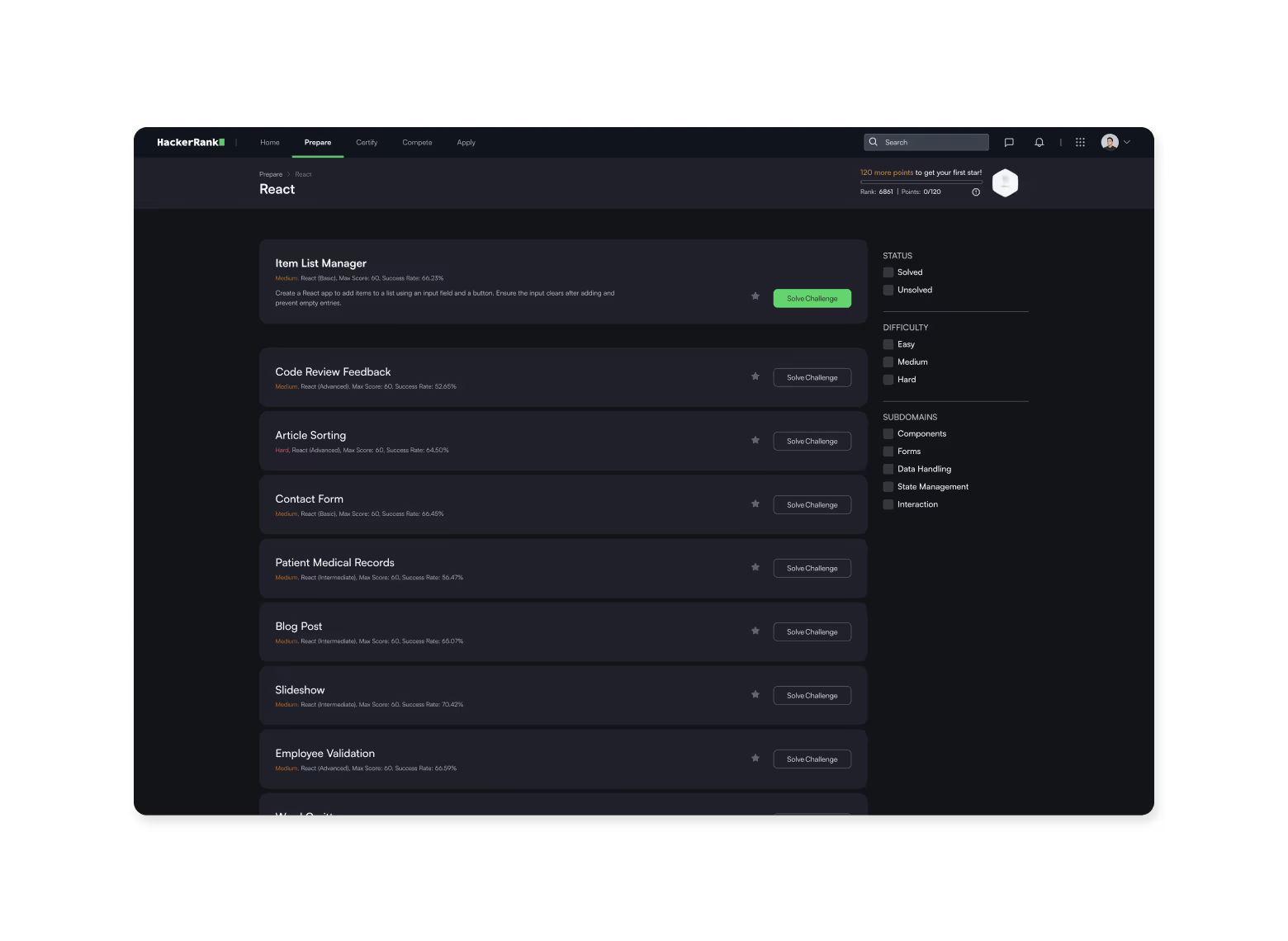
Developers can now sharpen their React skills with a new practice track featuring 10 coding challenges. These challenges focus on mastering key concepts like building reusable components, handling user inputs in forms, and implementing robust state management solutions.
Platform Enhancements
New Design System & Accessibility Improvements
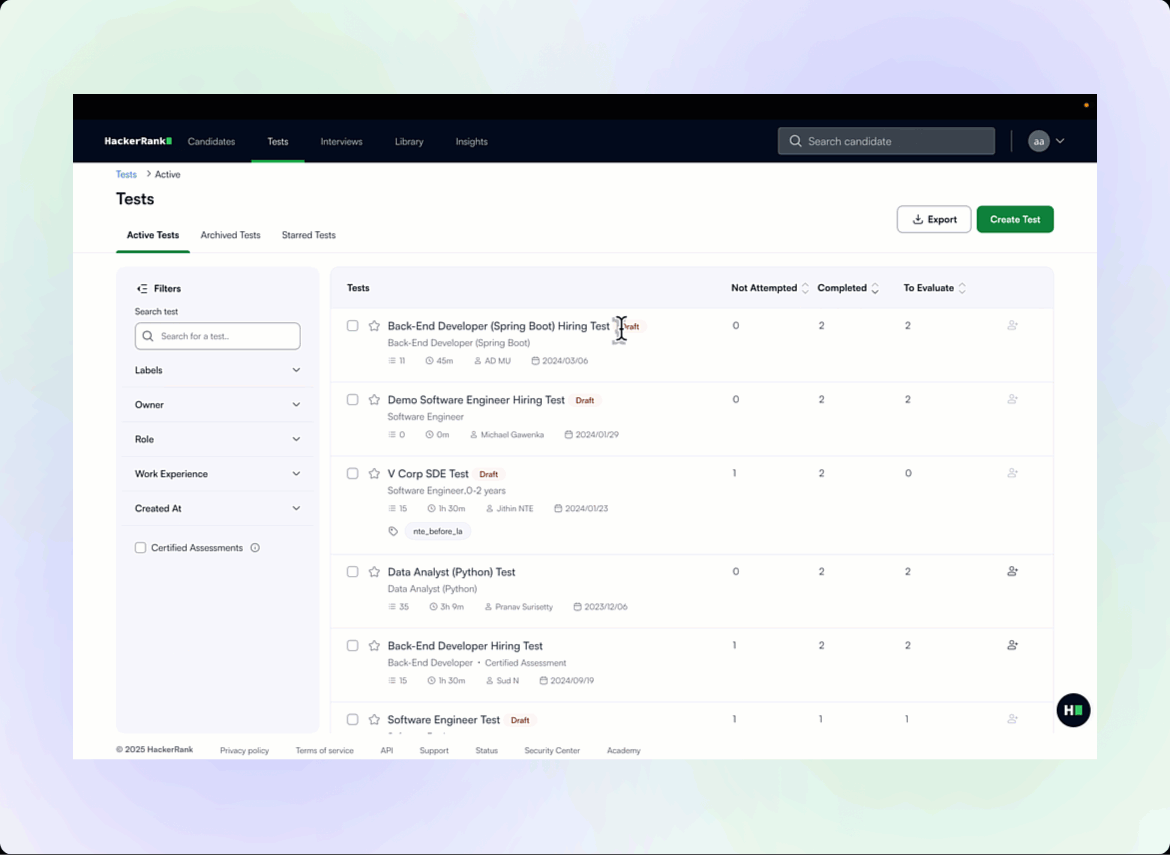
The platform has been upgraded with HackerRank’s latest design system, created with accessibility at its core. At Hackerrank, accessibility is central to designing and developing, ensuring you benefit from a more inclusive and consistent experience.
Skills Platform
Prompt Engineering Questions (Available for Tests)
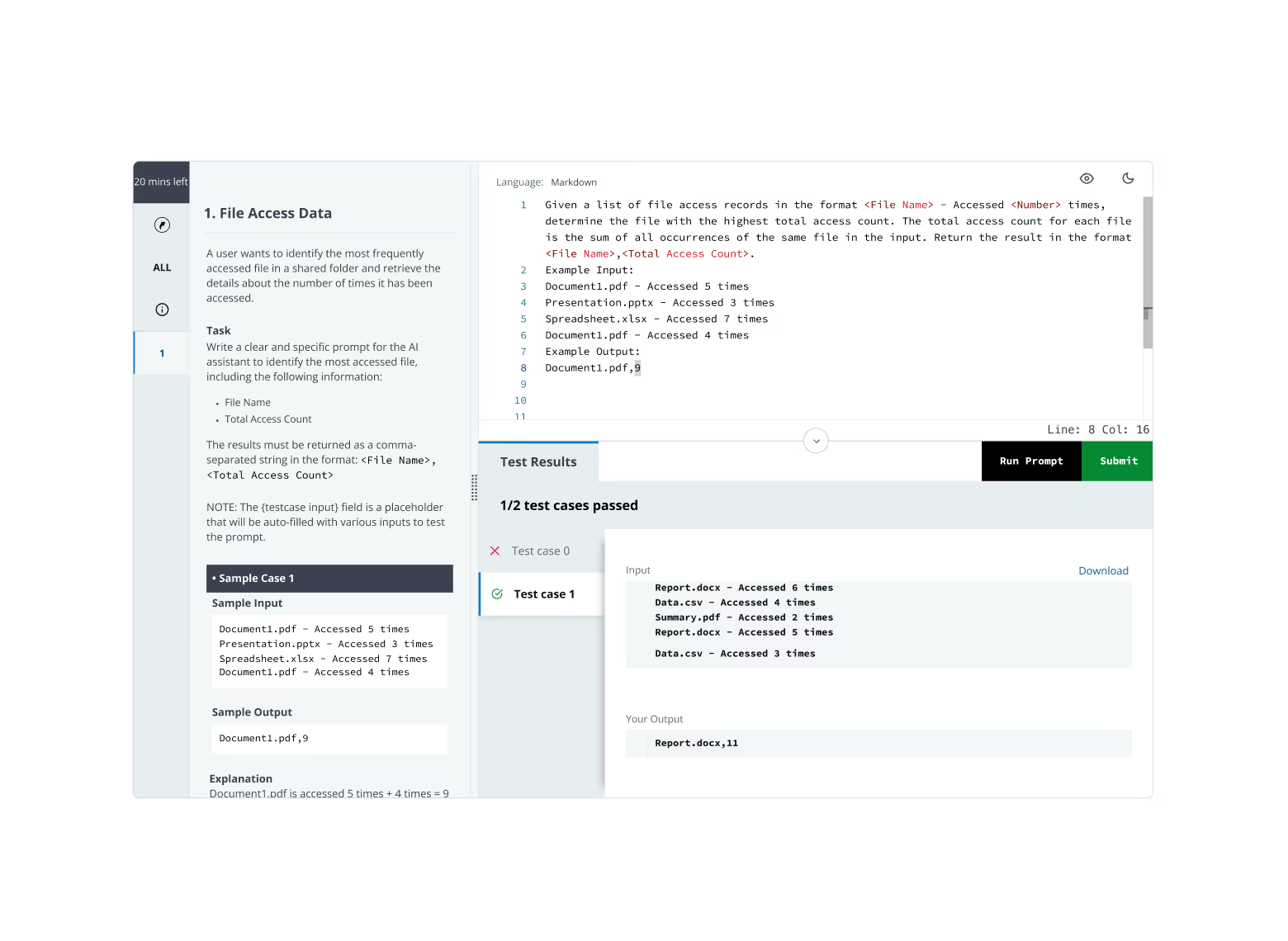
AI is revolutionizing software engineering, making prompt engineering a vital skill, and with this release, you can now evaluate candidates’ ability to design effective AI prompts through 7 new prompt engineering questions added to the library and automated scoring to assess their proficiency in building effective prompts.
Retrieval Augmented Generation Questions (Limited Availability for Tests)
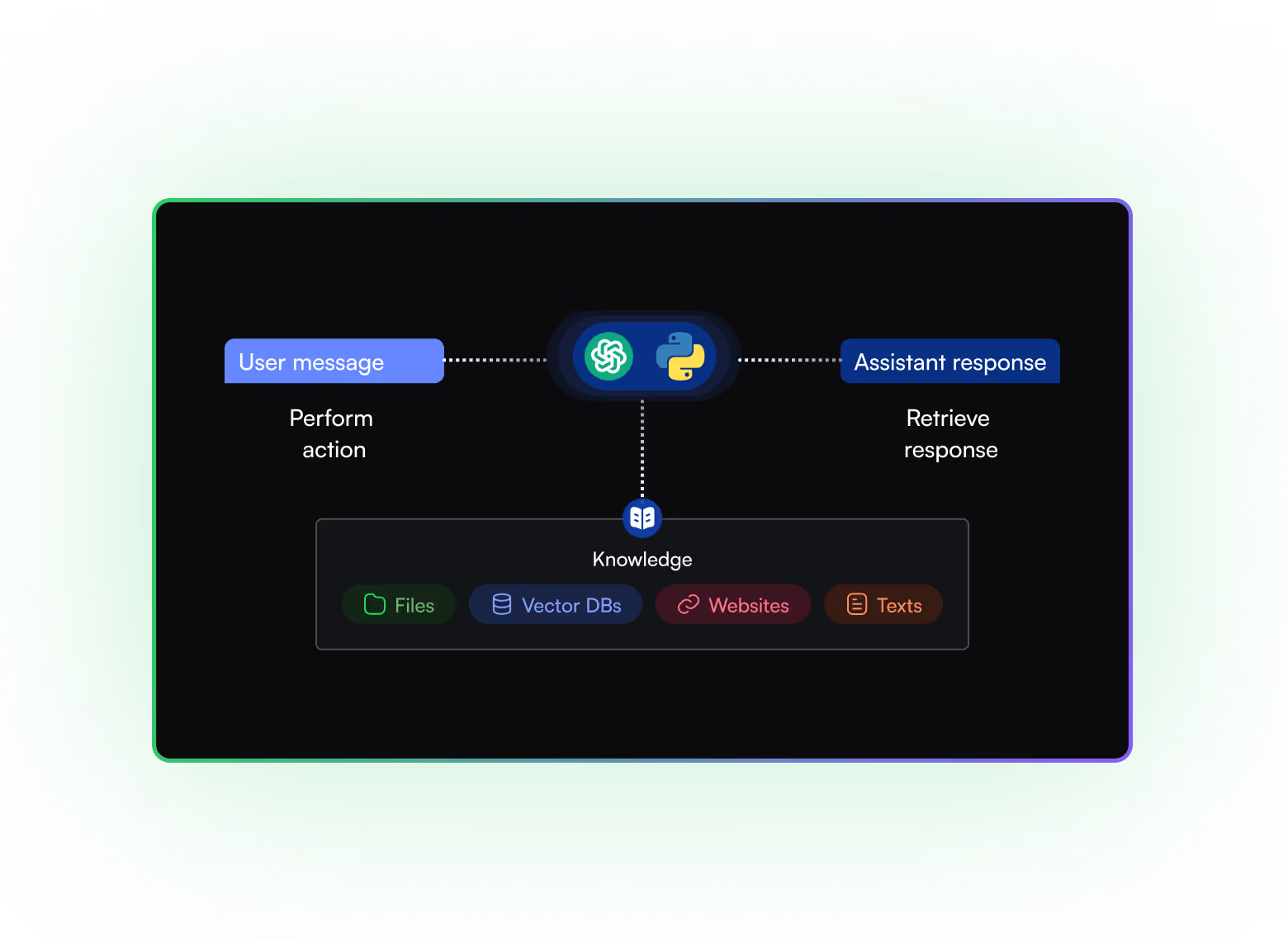
RAG (Retrieval Augmented Generation) expertise is crucial for building context-aware AI solutions. This feature enables you to evaluate candidates on their ability to retrieve relevant information and create personalized AI-driven applications like support bots.
Code Repository Questions (Available for Interviews)
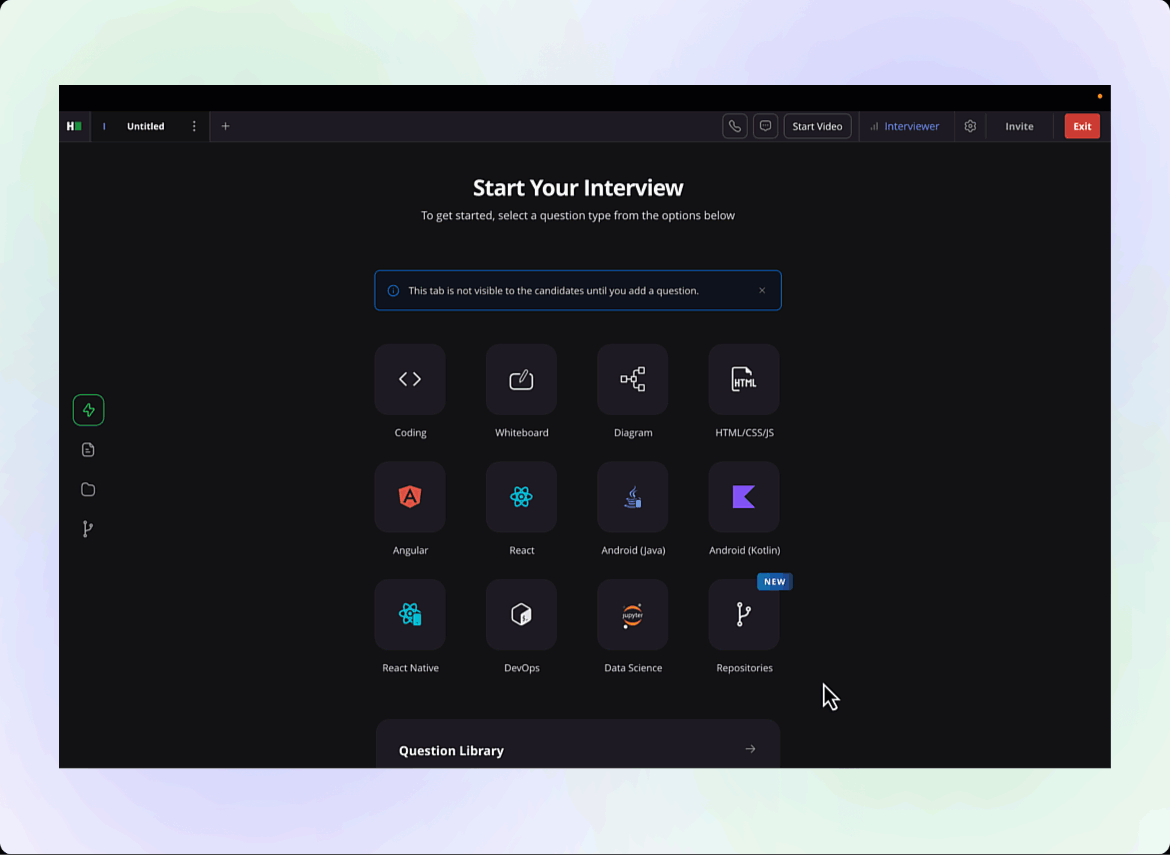
Assess candidates on real-world development tasks, including bug fixes, feature creation, and system design, with the new Code Repository question type, providing deeper insights into their skills and approach to engineering. It includes 6 pre-built repositories and 110 out-of-the-box tasks.
Code Quality Grading (Limited Availability)
.avif)
You can now evaluate candidates beyond correctness with a Code Quality grade for their code, accompanied by detailed comments. This allows you to dig deeper into areas where candidates may be falling short and helps you bring higher-quality candidates further into your hiring funnel.
Library Enhancements
Content Quality Improvements
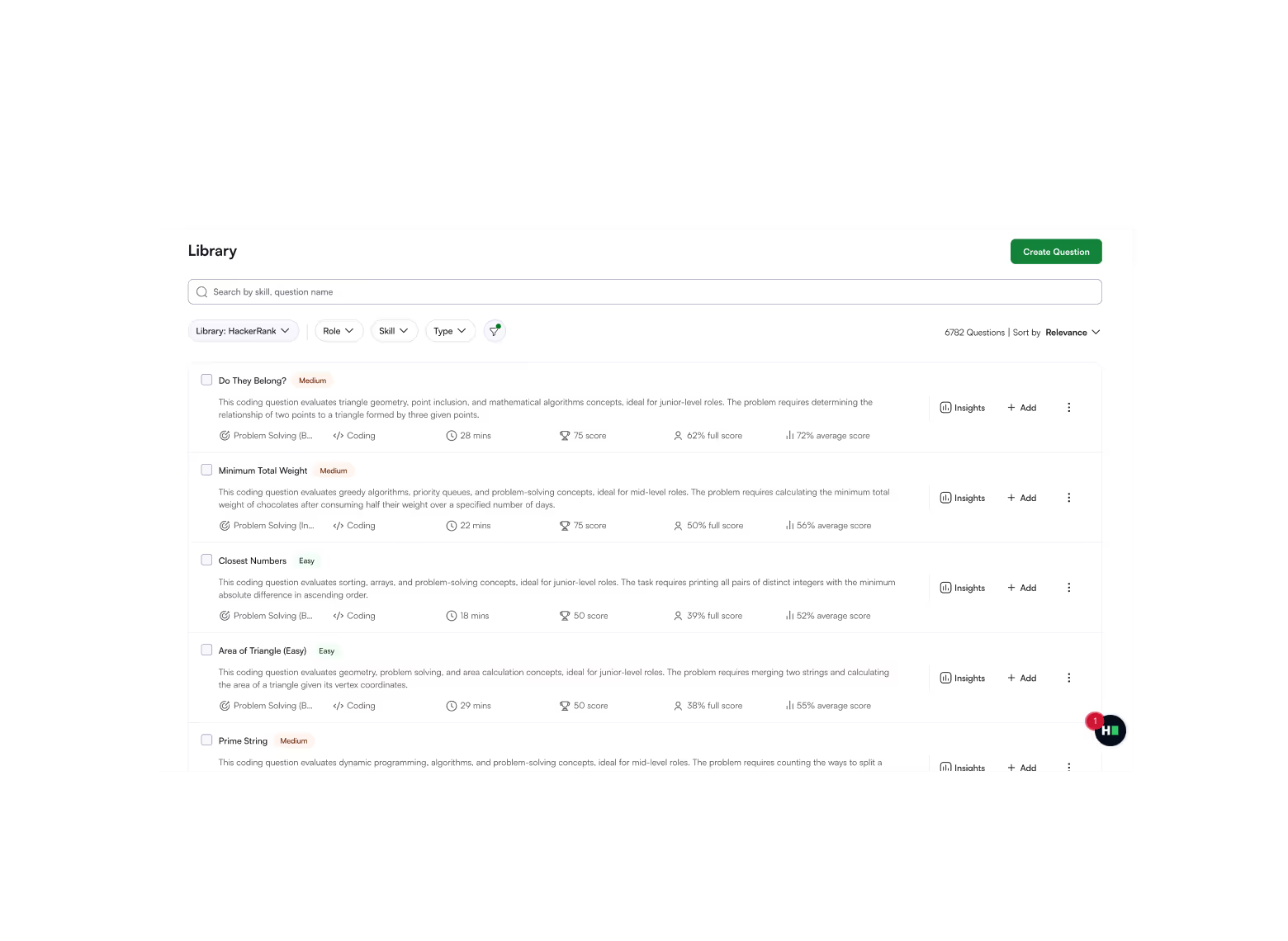
To help candidates demonstrate their skills effectively, we’ve enhanced 60+ existing questions using AI for improved clarity, precision, and readability. All new questions will also undergo a rigorous review process.
New Content
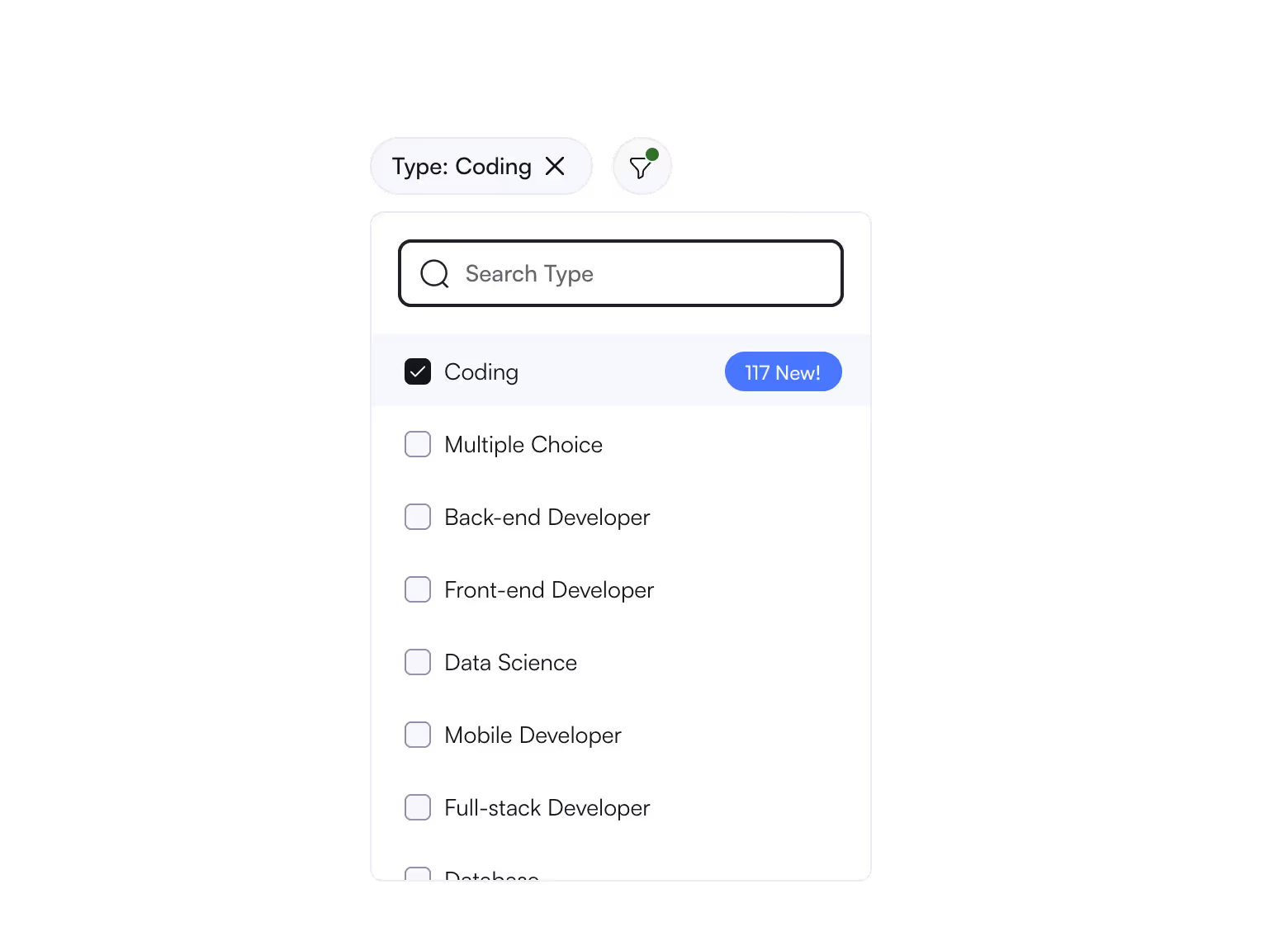
The updated content library features new challenges to help you effectively assess candidates on a wide range of skills. The latest refresh includes 117 coding challenges to evaluate programming skills and problem-solving abilities, along with 64 real-world projects to see how candidates approach and complete complex tasks.
Enhanced Library Experience
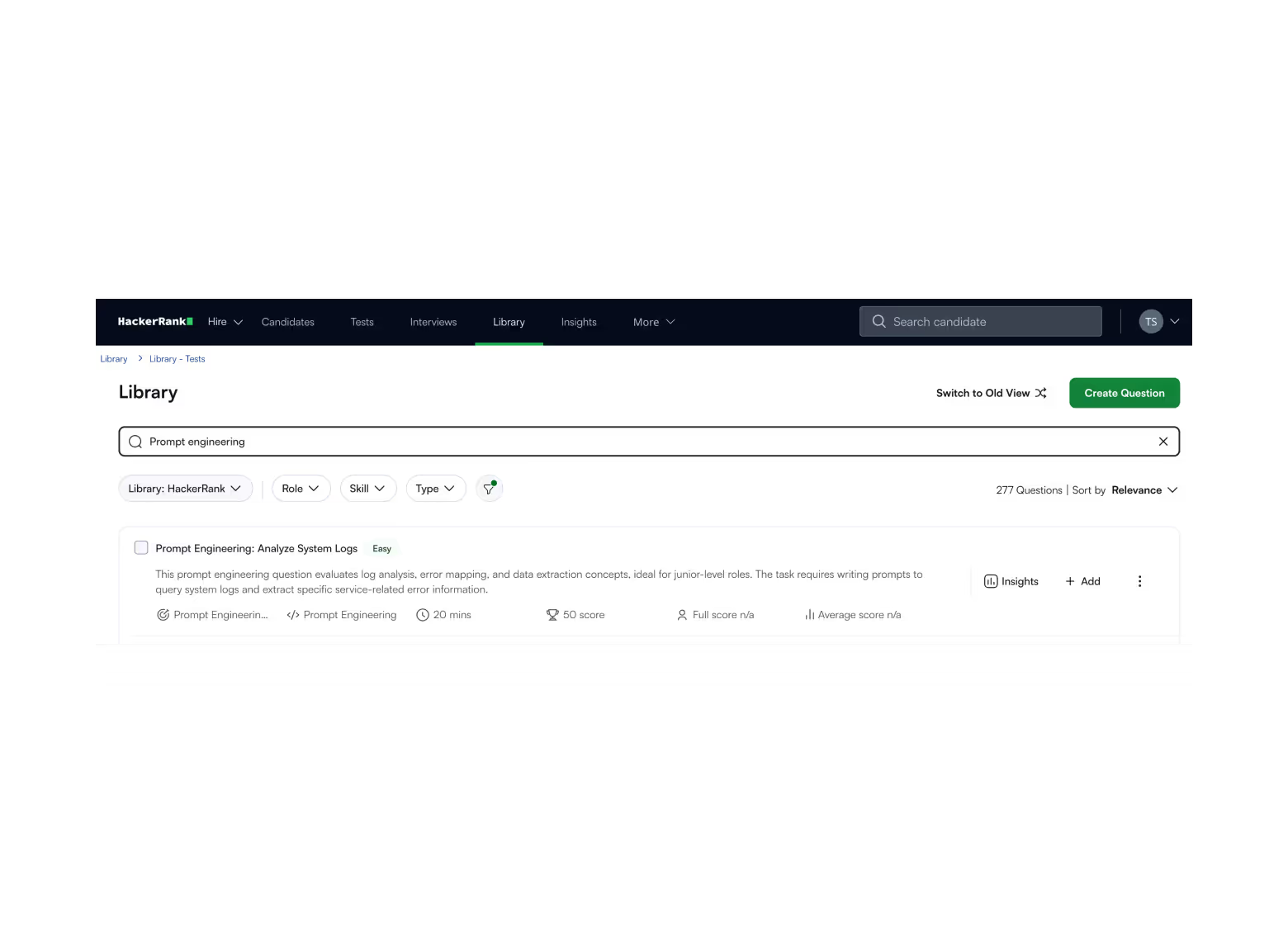
The updated HackerRank Library makes it easier to find the right questions for your assessments. The improved interface includes concise question summaries, 17+ filters for precise searches, and sorting options based on performance metrics. Now, you can quickly review key details like question type, difficulty, and completion times to match your hiring needs.
Decimals & Zero Scores in Multiple-Choice Questions
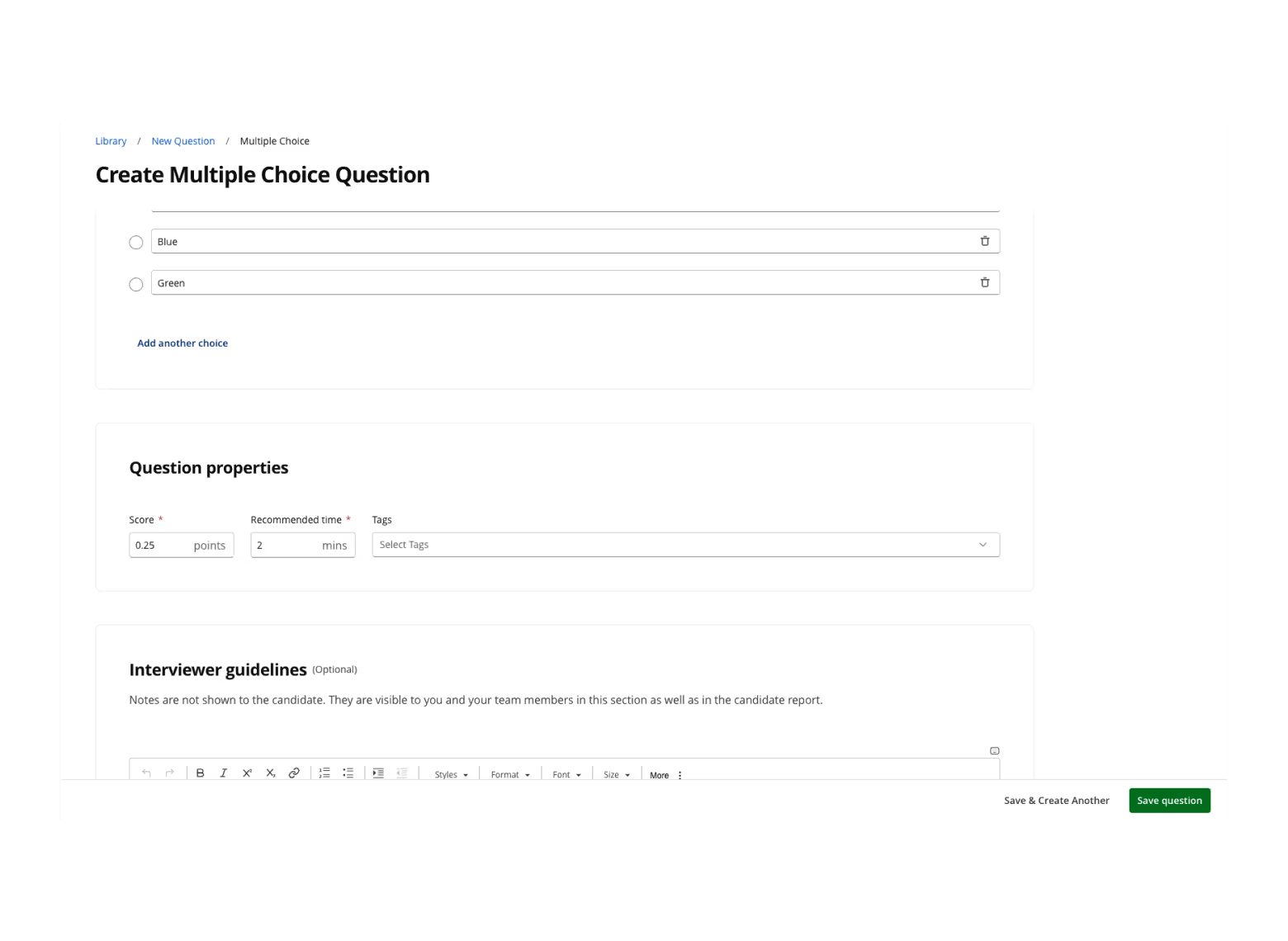
Gain better control over grading by assigning fractional scores (e.g., 0.25 or 0.50) to multiple-choice questions. You can also assign a zero score for practice questions or quality assessments.

